By Olivia Klein
On May 28, United States Attorney General Merrick Garland ’77 took part in a roundtable discussion with clinical students from Massachusetts law schools about their work to combat the housing and evictions crisis.
In August 2021, Attorney General Garland issued a call to the legal profession urging lawyers to support their local tenants, landlords, and courts in the wake of expiring eviction moratoriums imposed during the COVID-19 pandemic.
“Promoting access to justice to ensure that our justice system delivers outcomes that are fair and accessible to all, irrespective of wealth or status, is one of the highest ideals of the legal profession,” Garland wrote. “Because evictions are subject to state laws and local regulations, there is no national “one size fits all” solution. But no matter where you live, lawyers and law students like you can apply your legal training and skills to help your community.”
In the year since Garland’s call to action, clinics at Harvard Law School have doubled down on their efforts to advance housing justice in the Greater Boston community. Clinical programs including the Harvard Legal Aid Bureau, the Tenant Advocacy Project, the Harvard Dispute Systems Design Clinic, and the WilmerHale Legal Services Center have advocated for numerous tenants on individual and systemic levels to prevent and mitigate local evictions.
During the roundtable, Courtney Brunson ’22, former president of the Harvard Legal Aid Bureau, shared examples of the housing justice work being done at HLS. She emphasized that housing legal work is more difficult and important than ever before, and that eviction serves as a tool for the exploitation and disempowerment of vulnerable communities, creating civil rights violations that need to be identified by federal agencies.

Brunson spoke alongside students from Boston College Law School, Boston University School of Law, Massachusetts School of Law, Northeastern University School of Law, and Suffolk University Law School. Students discussed their own experiences representing individuals in housing court and working with local community organizations to guide renters and landlords through the application process for state housing relief funds. They particularly highlighted the disparate impacts the housing crisis has had on communities of color.
The students’ projects and collaborations display the myriad ways the law can be used as a tool to advance housing justice. Direct client work is one component of the effort. Lorenzo Cappelli, a 2022 LL.M. graduate of Boston College Law School, described what the experience of protecting his clients and their families from imminent homelessness means to him. Roberto Escaler, rising 3L student at Massachusetts School of Law, noted that the pandemic has had a major impact on the need for legal services; at the firm where he works as a paralegal on cases representing landlords and tenants, requests for consultations regarding eviction matters have increased 150%.
Innovations in technology have also created new solutions in the realm of housing justice. Julian Burlando-Salazar, a rising 3L at Boston University School of Law, discussed his work on the Massachusetts Defense for Eviction Portal, which utilizes technology to remotely assist unrepresented tenants to complete answer and discovery in their eviction cases; Lindsey Schoenhard, a 2022 graduate of Northeastern University School of Law, spoke about the Boston Housing Support Station, a project bringing together Northeastern’s NuLawLab and community partners such as the City of Boston Artist-in-Residence Program and Office of Housing Stability to combine technological resources with law student volunteers to support tenants in East Boston; Grace L. Barlow Enchill, a 2022 graduate of Suffolk University Law School, discussed the university’s Housing Discrimination Testing Program, which conducts empirical studies and provides education about discrimination in the renter housing market in an effort to protect local communities.
Take a look at a gallery of photos from the event here.
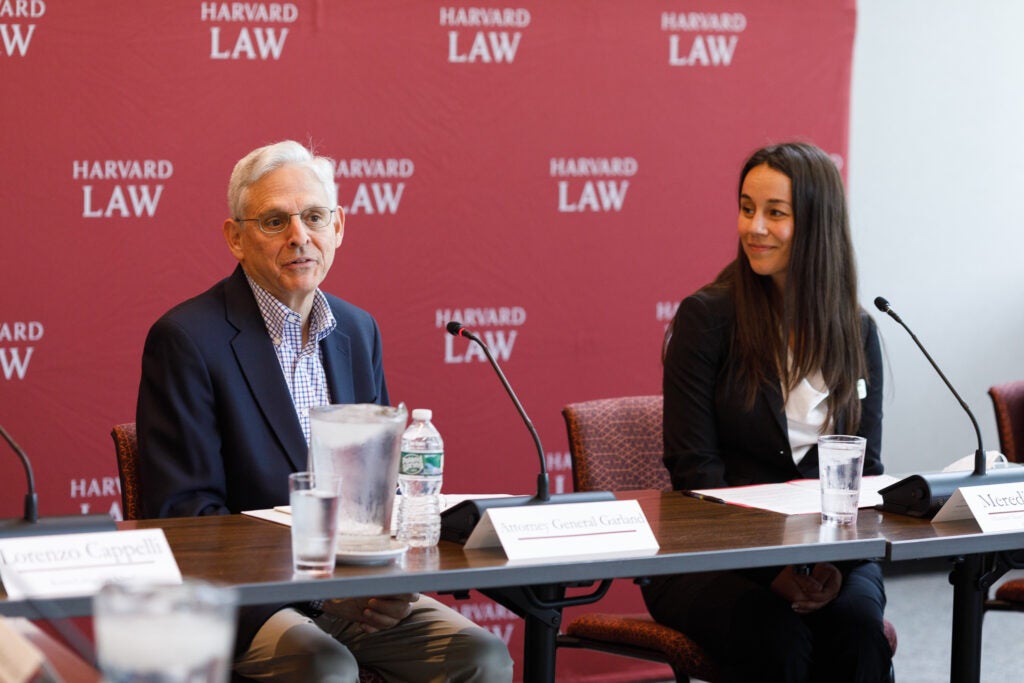
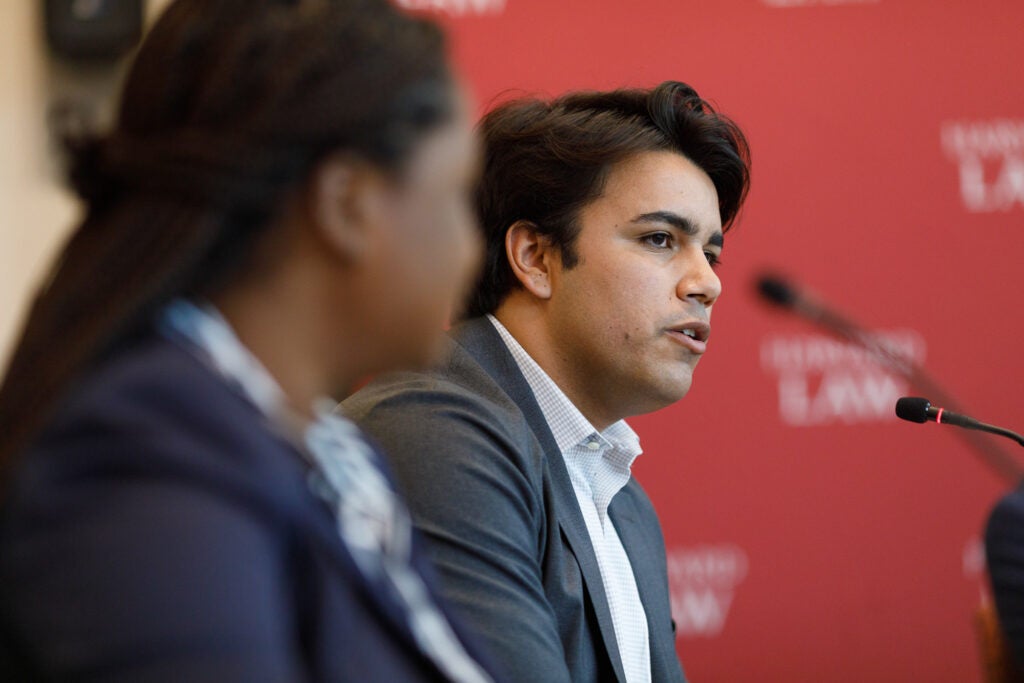
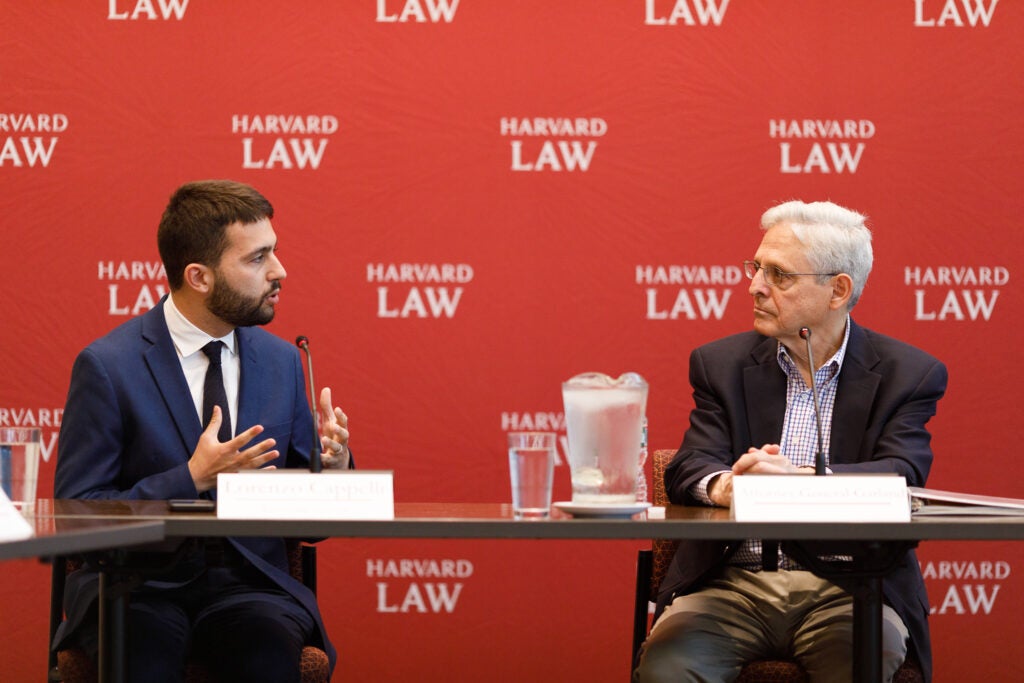
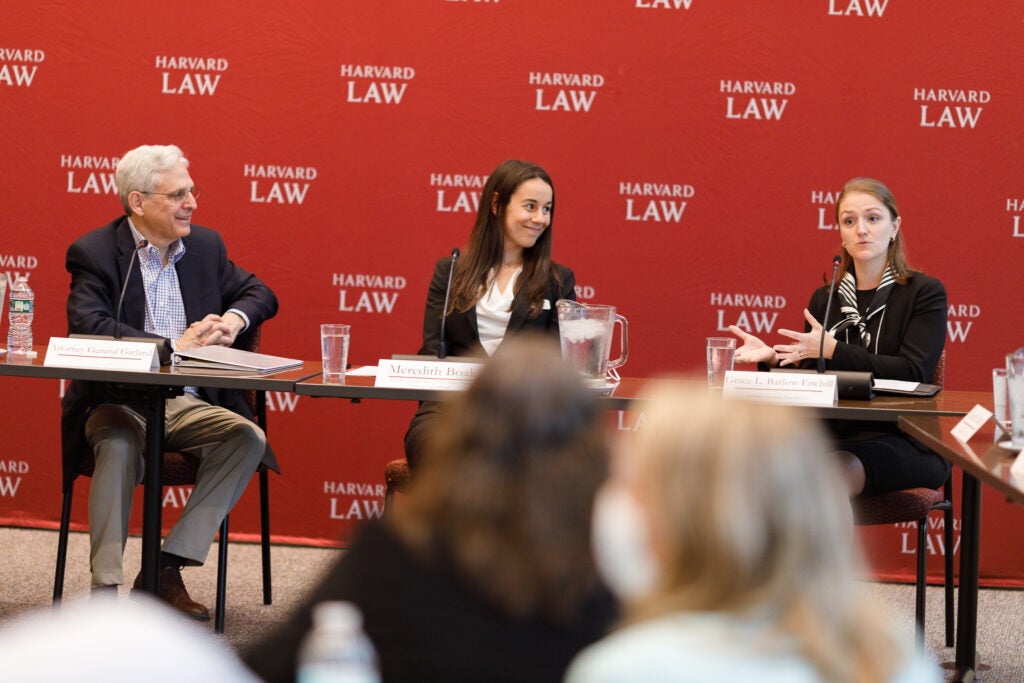
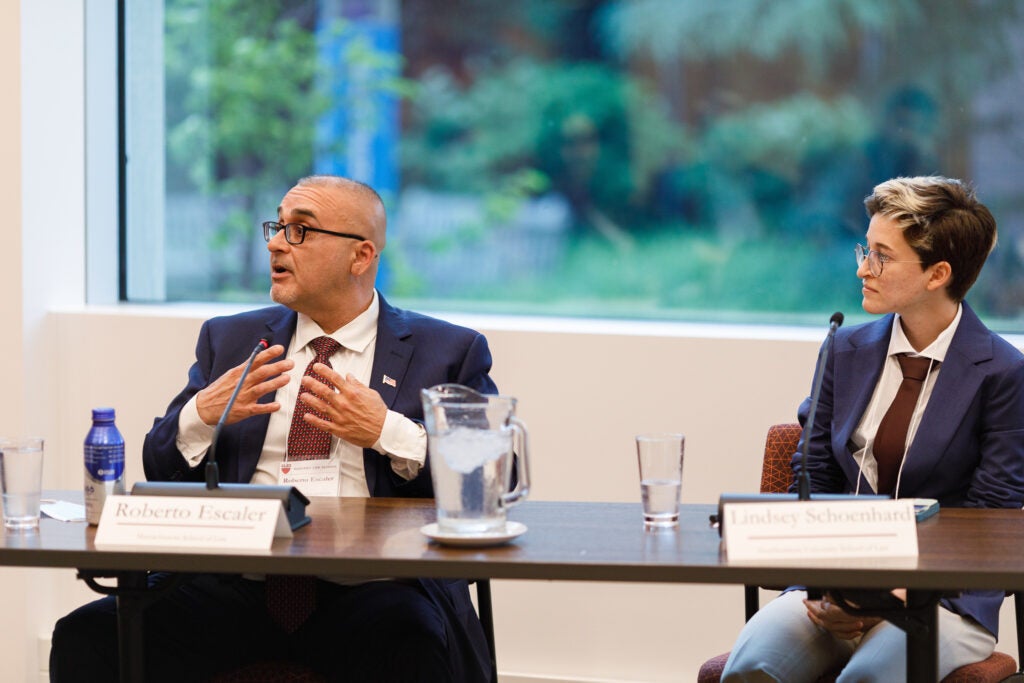
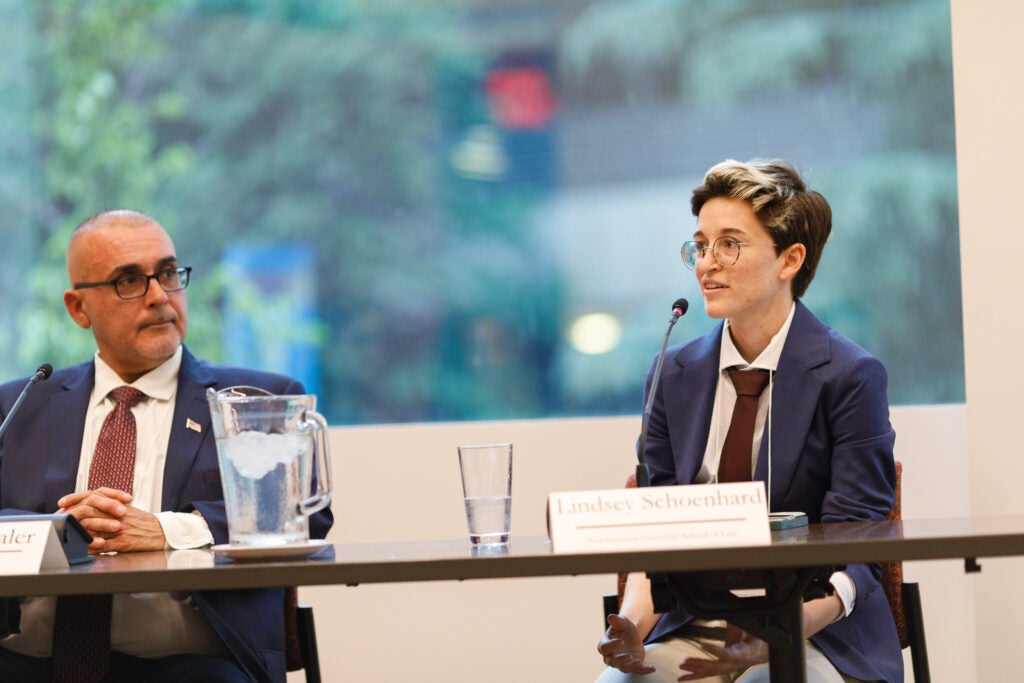
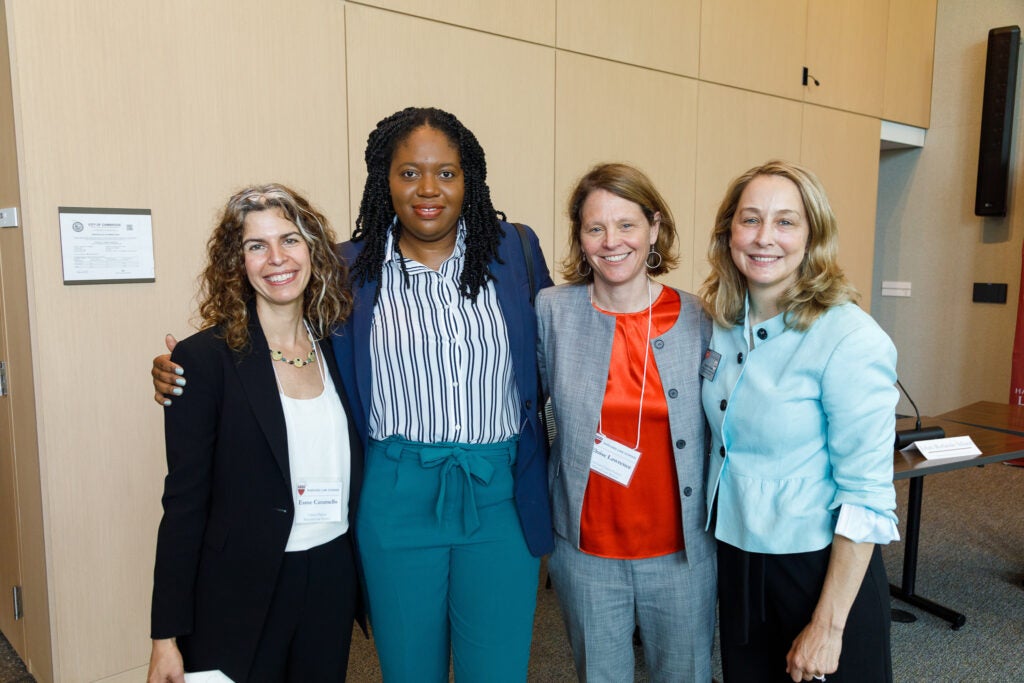
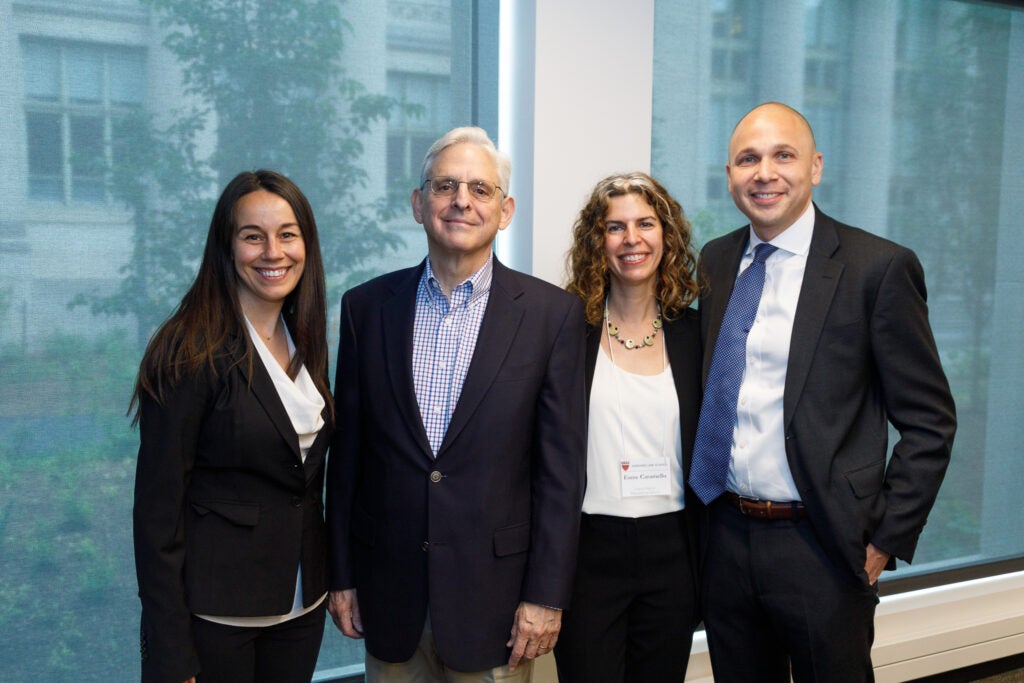
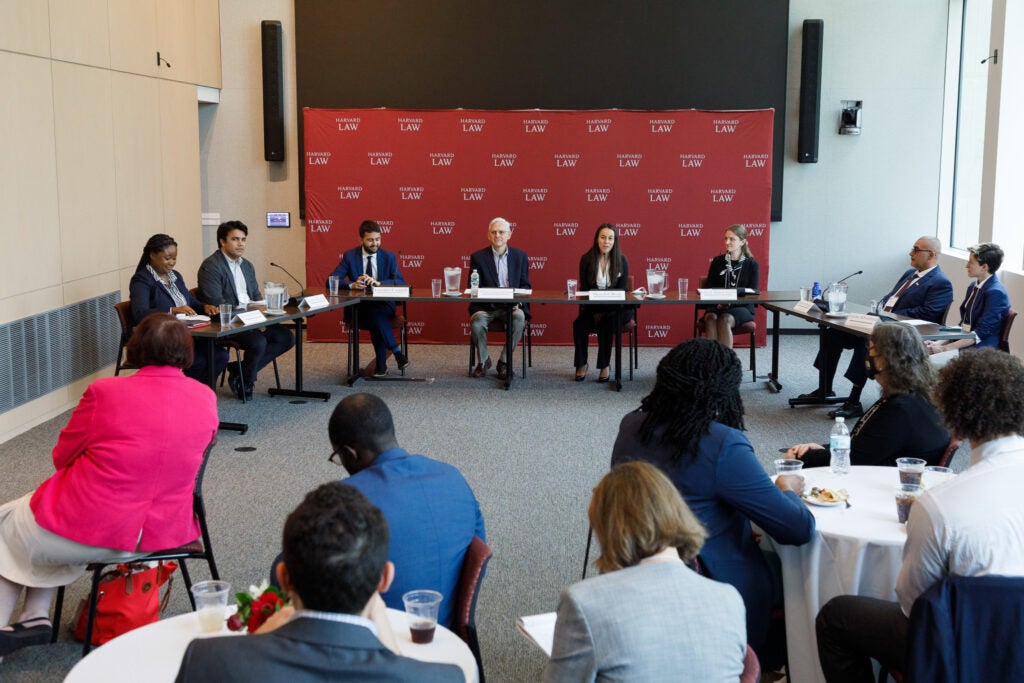
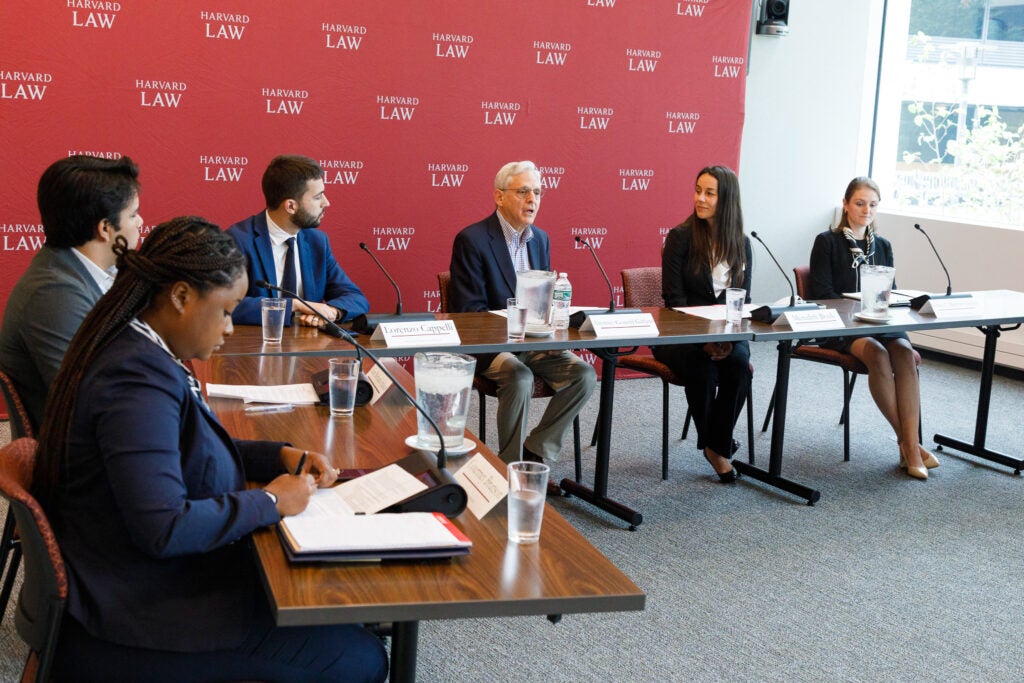
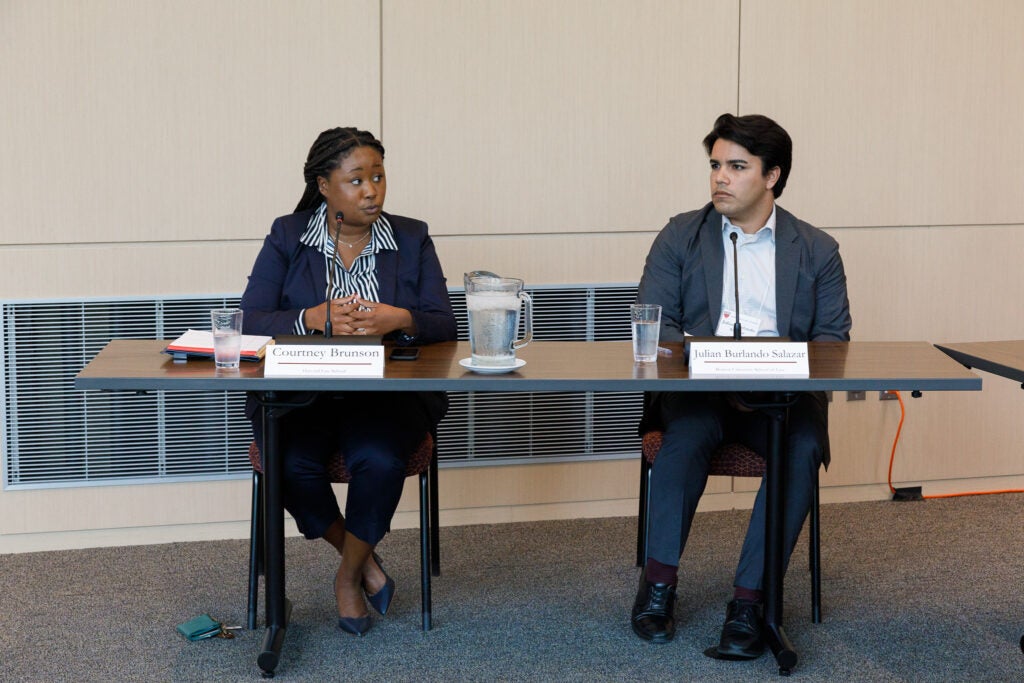

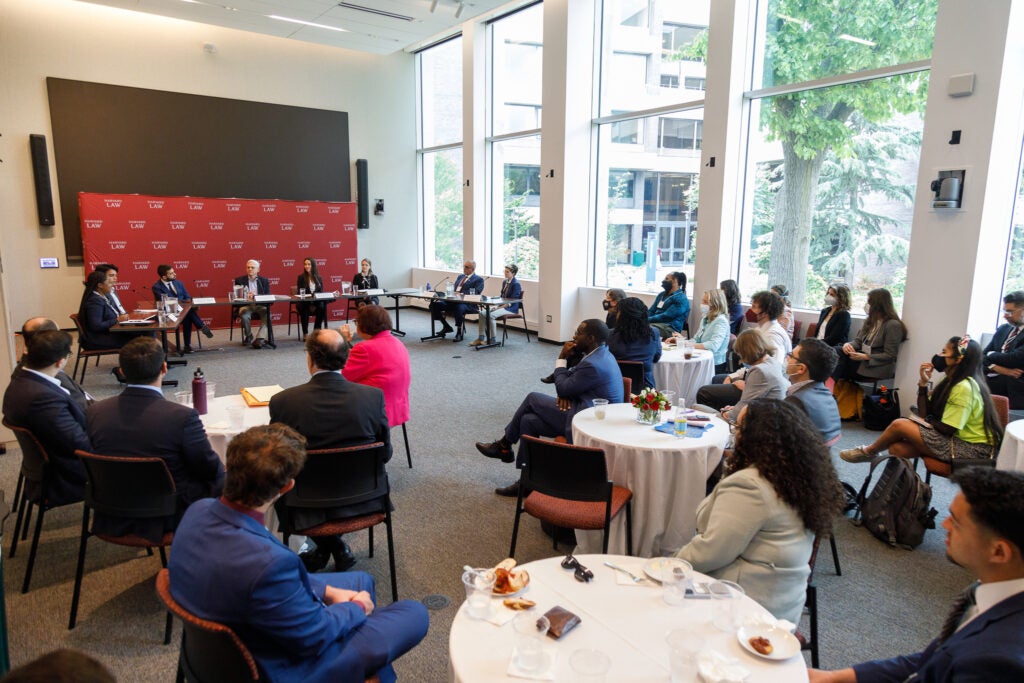
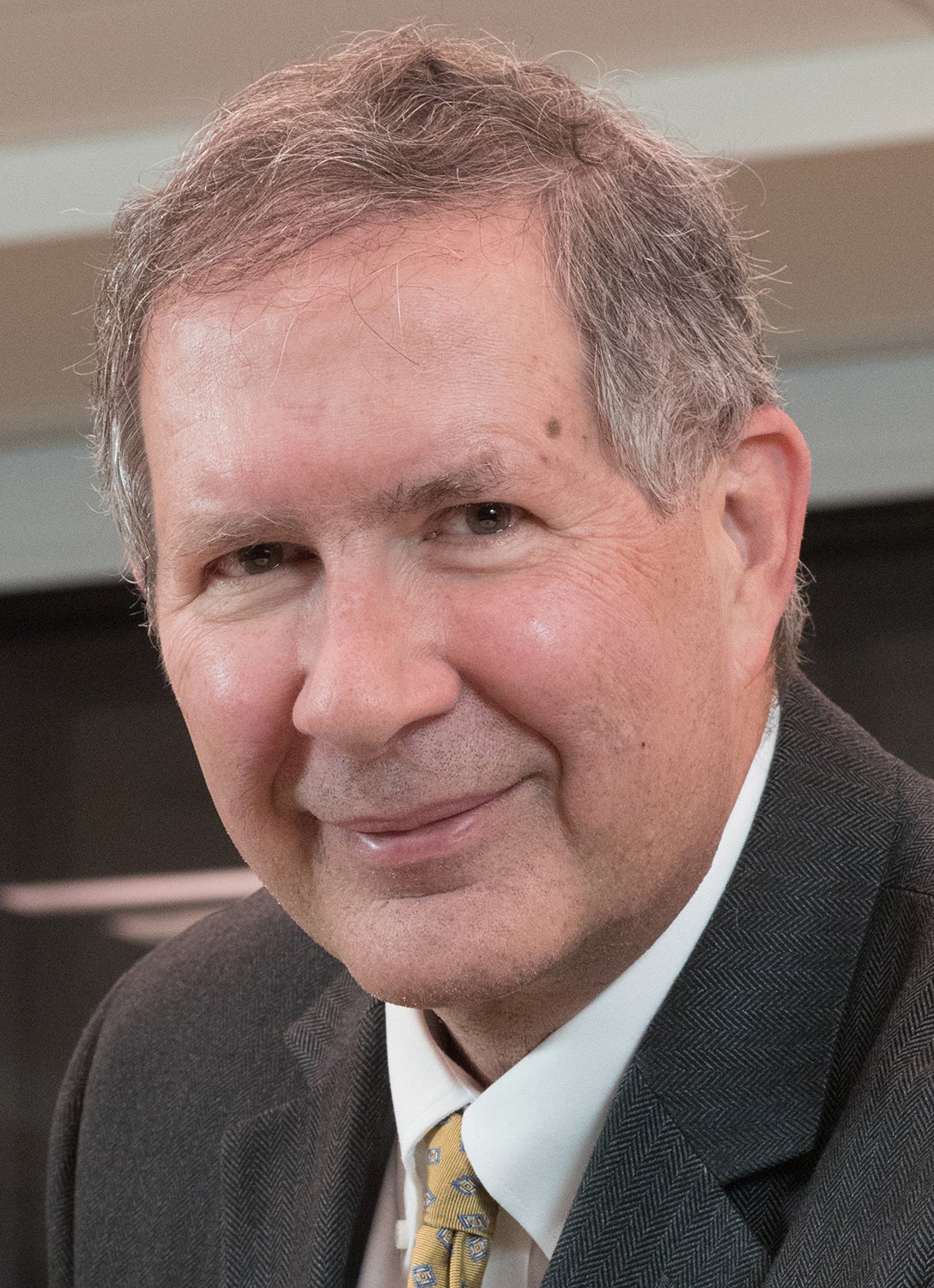
Filed in: Events, Legal & Policy Work
Contact Office of Clinical and Pro Bono Programs
Website:
hls.harvard.edu/clinics
Email:
clinical@law.harvard.edu